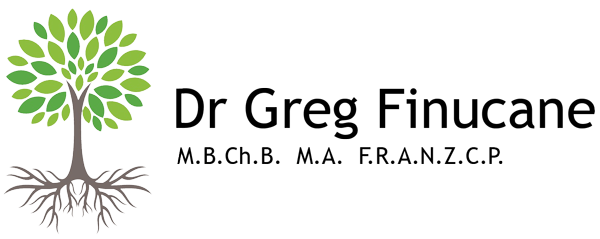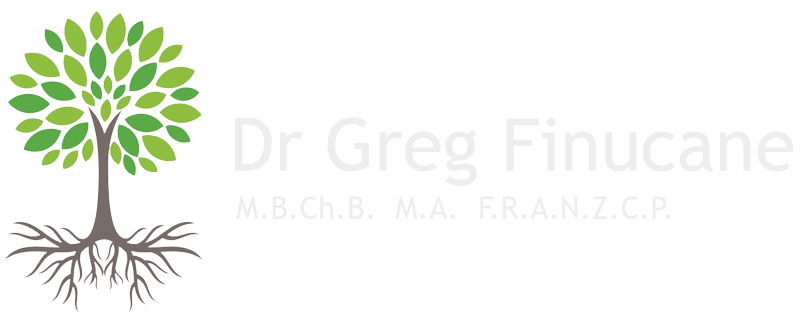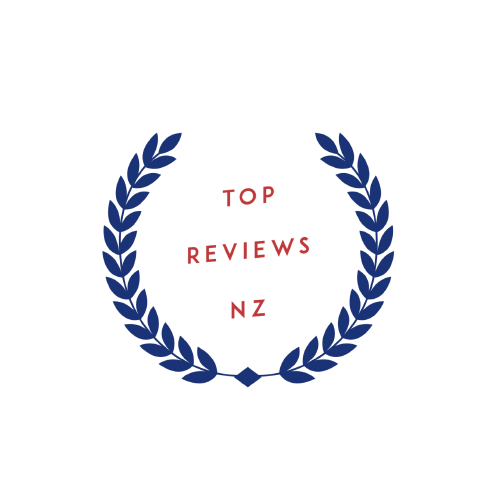About
About
Dr Greg Finucane
MBChB MA FRANZCP
Neuropsychiatrist
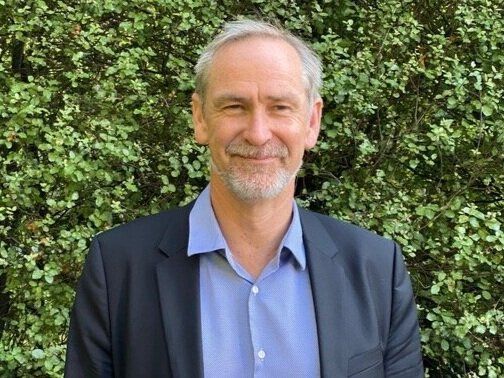
The myth that impulsivity, hyperactivity and attentional difficulties in children always resolve in adolescence has now been well and truly overturned. It does make sense that these should often improve as myelination of white matter tracts (particularly those connecting the frontal lobes to other parts of the brain) proceeds through adolescence, but another reason for the apparent improvement is that the disorder manifests differently in adulthood to how it presents in primary school children (and the DSM-5 criteria are based more on that earlier presentation). Estimated prevalence is about 5%, and it is estimated more than one half of those diagnosed with Attention Deficit Hyperactivity Disorder as children will continue to show signs of this disorder in their 20s, probably with gradually diminishing prevalence thereafter. It is a true psychiatric disorder which will typically impair, at least to a degree, occupational and relationship functioning and cause subjective symptoms (depending on the subtype). Self report on instruments such as the CAARS (Connors) scales or other questionnaires) eg the DIVA) has been found relatively reliable in a range of studies, some from Australia.
I am originally from Whakatane in the Bay of Plenty, attended Medical School in Auckland, and subsequently worked my House Officer years in Palmerston North, where amongst other attachments I was House Officer to Dr (now Sir) Mason Durie. Having returned to Auckland, initially at Carrington Hospital, for my psychiatry training, 18 months of this was spent in Liaison Psychiatry, including weekly clinics at the Concussion Clinic with Dorothy Gronwall and Philip Wrightson. I then worked for just over a year in Birmingham, UK, including Liaison Psychiatry and Neuropsychiatry attachments, but also laid the groundwork for an MA in the Philosophy and Ethics of Mental Health at Warwick University, subsequently completing requirements back in New Zealand.
From 1997 through 2017, my public practice at Auckland Hospital was dominated by Neuropsychiatry interests including especially Huntington’s Disease, Parkinson’s Disease and Epilepsy. Other neuropsychiatry activities included directing the Concussion Clinic from early 1998 after Mr Philip Wrightson retired, through to late 2005, and as the Senior Medical Officer in the Community Neurobehavioural Service from 1997 for five years.
From 2017 though 2019 I was working as a liaison psychiatrist at Waitemata DHB (North Shore and Waitakere Hospitals). Other public commitments have included as Clinical Director of Te Whetu Tawera from 2009 to 2015, as Director of Area Mental Health Services for Auckland DHB in 2008-9 and 2016-17, and from December 2018 to August 2022 as Service Clinical Director and DAMHS for Waitemata DHB. I am currently in full time private practice.
For most years since 1999 I have spent between one and 4 tenths in private practice, working largely with neuropsychiatric issues in traumatic brain injury, via an ACC contract; ADHD and ASD; Intellectual Disability with emotional and behavioural symptoms; and emotional and behavioural aspects of Movements Disorders and Epilepsy. I have taught the psychiatry registrars on Movement Disorders and Epilepsy. For about 15 years I have been the New Zealand committee member on the Section of Neuropsychiatry of the RANZ College of Psychiatrists, and am a member of the International Neuropsychiatric Association as well as other organisations including the ILAE, IBIA, and Movement Disorder Society.
Commonly, adult ADHD is complicated by other secondary disorders especially substance use disorders, anxiety or depression, and impulse control disorders. There is a complex and not fully understood relationship between ADHD, autism spectrum disorders, and bipolar II disorder. It is important to be clear about whether a substance use disorder is producing attentional deficits and disruptive behaviour or whether true ADHD is present.
As the diagnosis becomes more accepted and widely known, more adults are being treated for this condition, but generally outside the publicly fundedmental health system although some coommunity mental health services have availability.
In adults, the basics of treatment are to control the underlying attentional disorder, hyperactivity and impulsivity with medication, then apply cognitive behavioural strategies to assist the individual in repairing the personal damage (to self and others) from years of untreated disorder, and to assist them in developing more functional coping strategies to replace those which they have developed over the years to help them get by.
Support from a local organisation can be very helpful, including the ADHD Association and the online support group adhd.org.nz
both for the affected individuals but also their friends and family. Also ADDitude Magazine
is a useful resource, with this advice
in booklet form developed y the ADHD Foundation in the UK generally applicable in New Zealand.
If you think that perhaps you have undiagnosed ADHD then we would suggest you complete this ADHD screen
and discuss with your GP whether a referral would be indicated.
***
I am originally from Whakatane in the Bay of Plenty, attended Medical School in Auckland, and subsequently worked my House Officer years in Palmerston North, where amongst other attachments I was House Officer to Dr (now Sir) Mason Durie. Having returned to Auckland, initially at Carrington Hospital, for my psychiatry training, 18 months of this was spent in Liaison Psychiatry, including weekly clinics at the Concussion Clinic with Dorothy Gronwall and Philip Wrightson. I then worked for just over a year in Birmingham, UK, including Liaison Psychiatry and Neuropsychiatry attachments, but also laid the groundwork for an MA in the Philosophy and Ethics of Mental Health at Warwick University, subsequently completing requirements back in New Zealand.
From 1997 through 2017, my public practice at Auckland Hospital was dominated by Neuropsychiatry interests including especially Huntington’s Disease, Parkinson’s Disease and Epilepsy. Other neuropsychiatry activities included directing the Concussion Clinic from early 1998 after Mr Philip Wrightson retired, through to late 2005, and as the Senior Medical Officer in the Community Neurobehavioural Service from 1997 for five years.
From 2017 though 2019 I was working as a liaison psychiatrist at Waitemata DHB (North Shore and Waitakere Hospitals). Other public commitments have included as Clinical Director of Te Whetu Tawera from 2009 to 2015, as Director of Area Mental Health Services for Auckland DHB in 2008-9 and 2016-17, and from December 2018 to August 2022 as Service Clinical Director and DAMHS for Waitemata DHB. I am currently in full time private practice.
For most years since 1999 I have spent between one and 4 tenths in private practice, working largely with neuropsychiatric issues in traumatic brain injury, via an ACC contract; ADHD and ASD; Intellectual Disability with emotional and behavioural symptoms; and emotional and behavioural aspects of Movements Disorders and Epilepsy. I have taught the psychiatry registrars on Movement Disorders and Epilepsy. For about 15 years I have been the New Zealand committee member on the Section of Neuropsychiatry of the RANZ College of Psychiatrists, and am a member of the International Neuropsychiatric Association as well as other organisations including the ILAE, IBIA, and Movement Disorder Society.
Jo Dysart
Nurse Practitioner (Mental Health)
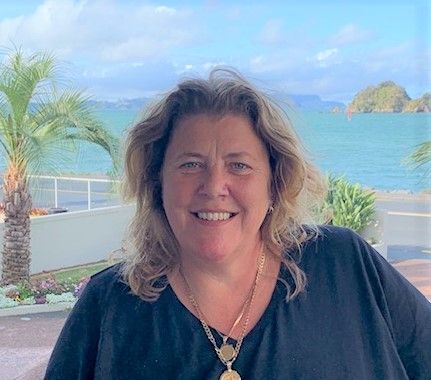
I am a Nurse Practitioner in mental health with a specialist interest in neuropsychiatry. I am originally from a small village in the Midlands, UK. I studied at De Montfort University in Leicestershire and became a registered Mental Health Nurse working in both acute and recovery-focused mental health settings.
In 1997 I became Community Sister at a specialist service for Huntington’s Disease in the UK. Then in 2003 my family and I emigrated to Aotearoa, New Zealand.
From 2007 to 2015 I worked alongside consultant Neuropsychiatrist Dr Greg Finucane at the Regional Huntington’s Disease Service continuing my interest in neuropsychiatry. I am also CEO at the Huntington’s Disease Association (NGO) from 2003 to the present day.
I am currently a member of Brain Research New Zealand, Centre for Brain Research, University of Auckland, Rare Disorder Society, Neurological Foundation of New Zealand, International Huntington’s Disease Association, and Executive Committee of the Huntington’s Disease Association.
In 1997 I became Community Sister at a specialist service for Huntington’s Disease in the UK. Then in 2003 my family and I emigrated to Aotearoa, New Zealand.
From 2007 to 2015 I worked alongside consultant Neuropsychiatrist Dr Greg Finucane at the Regional Huntington’s Disease Service continuing my interest in neuropsychiatry. I am also CEO at the Huntington’s Disease Association (NGO) from 2003 to the present day.
I am currently a member of Brain Research New Zealand, Centre for Brain Research, University of Auckland, Rare Disorder Society, Neurological Foundation of New Zealand, International Huntington’s Disease Association, and Executive Committee of the Huntington’s Disease Association.
